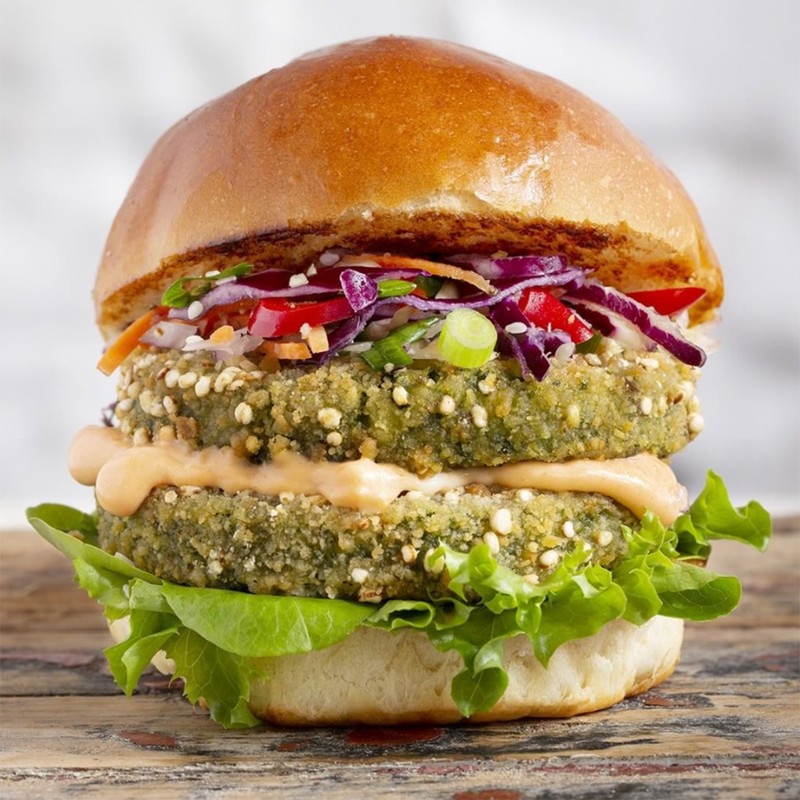How Healthy Really Is Plant-Based Meat?
Be Alternative Savvy
Meat-free Mondays are easier than ever thanks to a plethora of lookalike burgers on the supermarket shelves, but when it comes to nutrition, it pays to understand the different types. As Ellie explains, “Not all plant-based meat alternatives are created with the same intention. Some brands, like Beyond Meat and THIS, are designed to taste and smell like their meat counterparts (Beyond Meat actually uses beetroot juice extract so their burgers ‘bleed’). Others such as Biona and Gosh! are less about mimicking meat and more about the flavour of their plant-based ingredients – they do chickpea, beetroot and mint burgers as opposed to trying to replicate the texture and flavour of beef.”
They’re Not Entirely Guilt-Free
Beef replicas, like Beyond Meat’s products, may look like raw meat in the package but are entirely plant-based. But this doesn’t give them the green light when it comes to your diet. “Beyond Meat is a brilliant example of a brand leading the way in terms of food innovation,” Ellie says. “They’ve created burgers that have a similar macronutrient (protein, carbs and fat) content to regular burgers, and use lots of clever ingredients to mimic ‘bleeding’ (beetroot juices), sizzling (coconut oil) and texture, using binding ingredients like methylcellulose.” However, Ellie warns that some meat-free burgers contain 25% of the recommended daily saturated fat intake from the coconut oil in one portion alone. “In the same way that beef fat is, coconut oil is high in saturated fat, which can raise cholesterol levels if not part of a balanced diet.”
Look At The Salt Content Too
Possible issues don’t stop at saturated fat, Ellie says. The salt content of both meat replica burgers and other plant-based products can also be sky-high. “High salt content tends to be a problem with all packaged foods, plant-based or not, and should be an important consideration when choosing how often you eat them. The best way to get around this is to prepare your food from scratch so you know exactly which ingredients you’re consuming – i.e. how much salt, sugar and portions of vegetables you are including – and you know you’re avoiding additives and processed ingredients that have lost their nutritional status. This goes for plant-based burgers or 100% beef burgers.”
Be Wary Of Quorn
Quorn has been a vegetarian staple for years, but it too should be approached with caution. “Quorn products are made from a mycoprotein derived from a fungus (a mould) that undergoes fermentation. There’s quite a lot of variation between Quorn products in terms of salt and sugar levels, and while saturated fat levels tend to be lower than in some of the other products on the market, Quorn has still undergone a huge amount of processing. These products are okay to eat occasionally, but they shouldn’t be eaten every day or as your sole source of protein.”
Think About Other Protein Sources
When it comes to plant-based protein, Ellie recommends minimally processed whole foods instead of packaged ones. “Brown rice, quinoa, buckwheat, oats, chickpeas, lentils, beans, nuts and seeds are all great sources of nutrient-dense proteins. Tempeh is a brilliant plant-based protein for those able to tolerate soy – not only is it fermented and great for your gut, but it’s less processed than tofu and has a great texture to experiment with. If you really fancy a plant-based burger, try making your own from scratch. I love Hemsley + Hemsley’s Feta and Black Bean Burgers – they also work well without the feta as a vegan option. The Minimalist Baker also has a great recipe for vegan meatballs.”
See Them As A Treat
“If you’re having a BBQ with friends, there’s no reason to miss out on a burger just because you’re plant-based, but I really wouldn’t suggest making packaged meat alternatives part of your dietary staples,” says Ellie. “If you do want to enjoy these foods from time to time, try to cook them with minimal oil – steer clear of frying and try baking them in the oven to reduce the saturated fat content. Also consider what you’re eating with them – think about the rest of your plate and overall nutrient intake. You should always opt for an abundance of vegetables.”
Follow Ellie on Instagram here or visit EllieClarkeWellbeing.com
*Features published by SheerLuxe are not intended to treat, diagnose, cure or prevent any disease. Always seek the advice of your GP or another qualified healthcare provider for any questions you have regarding a medical condition, and before undertaking any diet, exercise or other health-related programmes.
INSPIRATION CREDITS: Instagram.com/gosh_food & Instagram.com/strongrootsuk
DISCLAIMER: We endeavour to always credit the correct original source of every image we use. If you think a credit may be incorrect, please contact us at info@sheerluxe.com.


